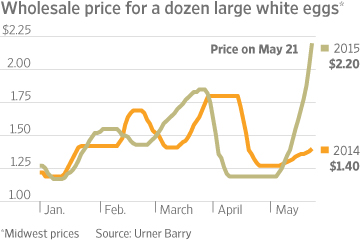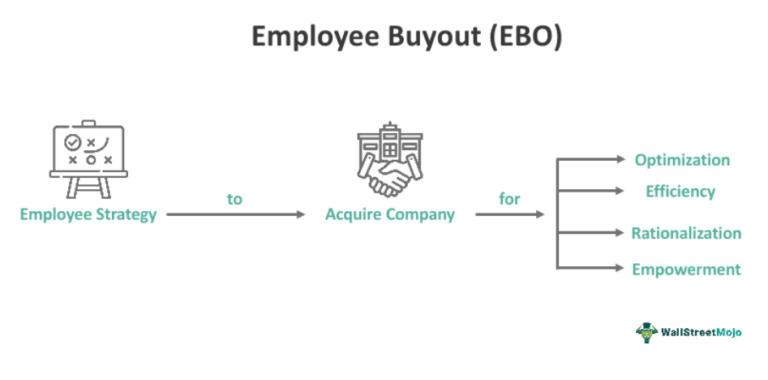
Audience
- Sentiment: Neutral
- Political Group: Moderate
- Age Group: Adults 30-50
- Gender: All genders
Overview
- Egg prices have surged to a record high of $4.95 due to a bird flu outbreak leading to the culling of millions of chickens.
- Factors contributing to rising prices include inflation, increased demand during holidays, changes in regulations for cage-free eggs, and production time for new chickens.
- Consumers are feeling the impact as higher egg prices strain budgets, prompting some to seek alternatives or change shopping habits.
Egg Prices Surge Amid Bird Flu Outbreak: What’s Going On?
Hey there, fellow food lovers! If you’ve been to the grocery store recently, you might have noticed something a little shocking: the price of eggs has gone through the roof. In fact, it’s hit a record high of $4.95 per dozen! Can you believe that? Just a few months ago, it was only $2.04. This drastic increase is primarily because of something we’re all familiar with: a nasty outbreak of bird flu that has caused the deaths of millions of egg-laying chickens. Let me break it down for you and explain why this is happening and what it means for all of us.
What is Bird Flu?
First things first, let’s talk about what bird flu is. Bird flu, or avian influenza, is a contagious virus that spreads among birds, especially domesticated ones like chickens and turkeys. It can be pretty deadly, leading to severe illness and even death in infected poultry. Unfortunately, it’s not just a problem for the birds; it can also impact the humans who come into contact with them, although that’s quite rare. The virus spreads easily, especially in crowded conditions where many birds are kept together.
In recent years, different strains of bird flu have emerged, but the current outbreak is one of the worst we’ve seen in a while. It has caused farms to destroy millions of birds—almost 158 million, to be precise—to try to contain the virus. Imagine having to get rid of a bunch of chickens that you’re counting on for eggs. It’s not just sad for the birds; it really shakes up the whole supply chain of eggs we depend on.
How Are Egg Prices Affected?
So why do egg prices shoot up when these birds are culled? Simply put, when there are fewer chickens laying eggs, there are fewer eggs available for all the consumers like us. When supply goes down, and demand stays the same or even increases, prices naturally rise.
Historically, we can look back to 2015 when a similar bird flu outbreak happened, and egg prices skyrocketed then too. If you ever wonder why eggs are such a big deal, think about all the foods that depend on them: from breakfast favorites like scrambled eggs and omelets to baked goods like cakes and cookies. If bakeries suddenly don’t have enough eggs, they might need to raise prices or even limit what they can make. This ripple effect can be felt everywhere.
What’s Behind the Spike in Prices?
Besides the bird flu, several factors are playing into this crazy price surge. We’re not just talking about the chickens here; the entire food production industry is affected by a range of issues. Let’s break some of these down:
- Inflation: Like other products, food prices are experiencing inflation, which is when everything from feed to fuel costs more. This means farmers face higher expenses, and they often pass these costs onto the consumers.
- Increased Demand: During holidays, like Easter and Thanksgiving, egg demand usually spikes because people love to cook and bake. This year, with the bird flu impacting supply, the competition for available eggs becomes even fiercer. Some stores have reported being unable to keep eggs on the shelves for long because customers are buying them up!
- Change in Regulations: New laws in several states are pushing farms to shift to cage-free egg production. While this is a positive step for animal welfare, the transition takes time and can temporarily reduce the number of eggs available.
- Production Time: If a farm loses chickens to the bird flu and then decides to bring in new birds, it’s essential to note that it takes time for these new chickens to mature and start laying eggs. Farms cannot simply flip a switch and produce more eggs overnight.
The Effects on Consumers
With prices rising, many consumers are feeling the pinch. A dozen eggs for nearly five bucks can be a lot for many families, especially when they’re working to stick to a budget. As people try to make their groceries last, some may cut back on how many eggs they buy, try different recipes, or even look for alternatives. This is particularly tough for families that rely on eggs for inexpensive yet nutritious meals.
Have you ever thought about how eggs are a go-to food for so many occasions? From breakfast sandwiches to egg salad, eggs are versatile. And let’s not forget about baking! Whether you are whipping up cookies or making a cake, eggs play a critical role in many recipes. But with prices so high, it’s becoming harder for people to enjoy these foods without thinking twice about their budgets.
What Can We Do?
Now you might be wondering, “What can we do about it?” While individual consumers have limited power when it comes to widespread outbreaks and economic trends, there are still things we can do:
- Plan Meals: Look for ways to incorporate other protein sources into your diet—like beans, lentils, or plant-based proteins. It might be worth trying new recipes that don’t rely heavily on eggs.
- Shop Smart: If you absolutely need eggs, consider shopping at local farmers’ markets or stores known for better deals. Sometimes eggs are even cheaper directly from producers.
- Consumers Speak Up: If you’re concerned about egg prices or the lack of availability, it’s always good to communicate with local stores or take part in community discussions. Sometimes these conversations lead to better solutions.
- Understand the Bigger Picture: Being aware of the factors affecting prices can help you make informed decisions, whether it’s at the grocery store or voting for policies that support sustainable agriculture practices.
Wrapping it Up
As we can see, the rise in egg prices isn’t just about what’s happening on the farm; it’s about a whole network of issues affecting everyone from producers to consumers. The ongoing bird flu outbreak has created a challenging situation that we’ll need to navigate as a community. It’s not easy to see how these challenges ripple through our lives, but by staying informed and flexible, we can find ways to enjoy our meals without breaking the bank.
What do you think about the current egg price situation? Have you noticed any tricks to save on groceries lately? Drop your thoughts in the comments! Let’s discuss it!





